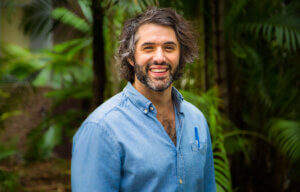Charlie Crimston is a social psychologist at The Australian National University. Her research explores the psychology of moral expansion, societal polarization, and the links between trans identity and well-being.
Dr. Matti Wilks is a Lecturer at the University of Edinburgh and PI of the Altruistic Minds Lab. She uses methods in social and developmental psychology to understand barriers to and facilitators of moral behaviour. She is interested in questions of moral circle expansion, including the characteristics of unusually altruistic individuals and how children and adults differ in their moral concern towards distant others. She also studies attitudes towards artificial intelligence and novel food technologies (e.g., cultured meat), as well as the natural-is-better bias.
James Kirby is a Clinical Psychologist and the Co-Director of the Compassionate Mind Research Group at the University of Queensland. He has broad research interests in compassion, but specifically examines factors that facilitate and inhibit compassionate responding. He also examines the clinical effectiveness of compassion focused interventions, specifically in how they help with self-criticism and shame that underpin many depression and anxiety disorders.




